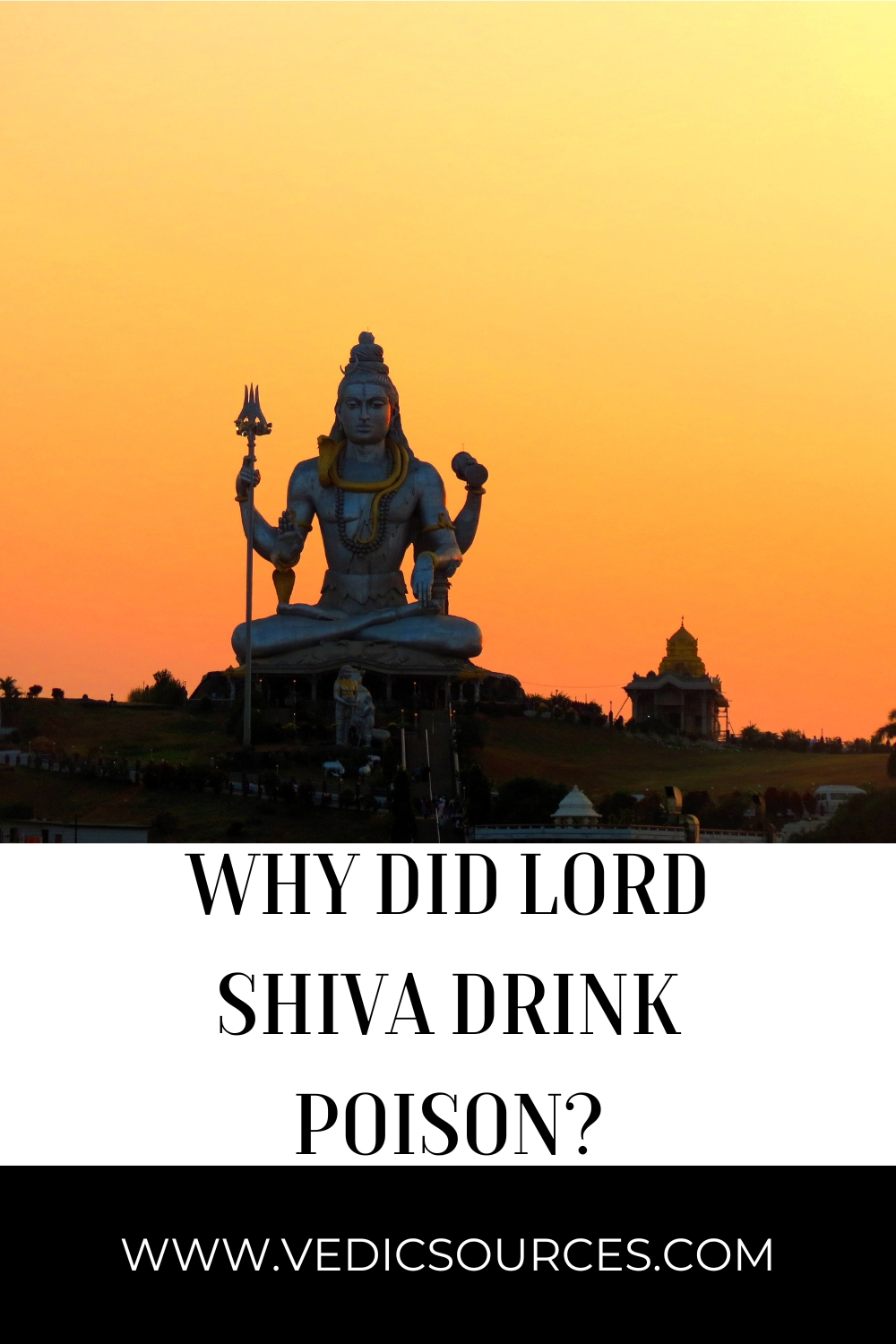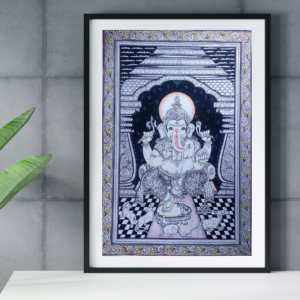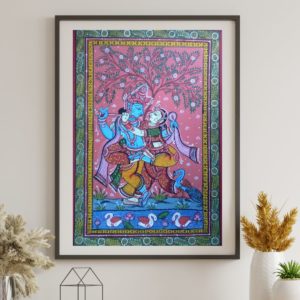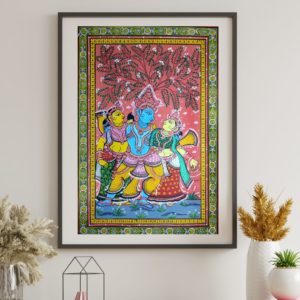The Hindu pantheon is replete with fascinating tales that showcase the divinity and complexities of its deities. Among the most intriguing of these stories is the account of Lord Shiva drinking poison during the great cosmic event known as the Samudra Manthan (churning of the ocean). This ancient legend holds deep symbolic significance and imparts valuable life lessons. In this comprehensive post, we will delve into the reasons and implications on Why Did Lord Shiva Drink Poison?
The Origin of the Samudra Manthan:
The Samudra Manthan is an epic episode from Hindu mythology that revolves around the churning of the cosmic ocean, called the Kshirasagara. The event was triggered by the Devas (celestial deities) and the Asuras (demonic forces) who sought the divine nectar of immortality, Amrita. Which could only be obtained through churning the ocean. However, due to the immense power required to churn the ocean, the Devas and Asuras sought the assistance of Lord Vishnu. Who suggested that Mount Mandara be used as the churning rod and the serpent Vasuki as the rope.
Why Shravan Month is Celebrated for Lord Shiva
The Emergence of the Poison:
As the churning of the ocean commenced, various precious treasures and celestial objects emerged, including the wish-fulfilling cow Kamadhenu, the divine horse Ucchaishravas, and the auspicious Apsaras (celestial nymphs). However, as the process continued, a deadly poison called Halahala emerged from the depths of the ocean. The sight of this potent poison struck fear and anxiety among both the Devas and Asuras.
The Desperation for a Savior: Why Did Lord Shiva Drink Poison
The Halahala poison was so lethal that its mere presence threatened to annihilate the entire universe. Faced with this catastrophic situation, the Devas and Asuras rushed to seek the guidance and protection of Lord Brahma, the creator of the universe. Lord Brahma, in turn, advised them to approach Lord Shiva, the cosmic deity of destruction and transformation, for a solution to neutralize the poison.
Why Nandi is Outside Shiva Temple
Lord Shiva’s Compassionate Nature: Why Did Lord Shiva Drink Poison
Lord Shiva, known for his benevolence and mercy, listened to the plea of the Devas and Asuras. Despite his reputation as a fierce and powerful deity, he possessed a compassionate heart that recognized the value of preserving the cosmos and all its living beings. His inherent sense of duty and responsibility toward maintaining the balance of creation compelled him to take action.
The Selfless Act of Consuming Poison:
Understanding the gravity of the situation, Lord Shiva willingly decided to drink the Halahala poison to prevent it from spreading and causing havoc. He chose to absorb the poison into his own throat, which turned blue as a result. Hence, he earned the epithet “Neelakantha” or “Blue Throated One.” This selfless act of sacrifice exemplified Lord Shiva’s willingness to endure suffering for the greater good of the universe.
Why Shiva Has Moon on His Head
The Role of Goddess Parvati:
As the poison entered Lord Shiva’s throat, it had the potential to cause immense pain and discomfort. To protect her husband, Goddess Parvati immediately clasped Lord Shiva’s throat, preventing the poison from descending further into his body. This compassionate act of the divine couple further signifies the significance of unity and support in times of crisis.
Symbolism and Philosophical Significance:
The tale of Lord Shiva drinking poison carries profound symbolic and philosophical implications:
a) Triumph over Adversity: Lord Shiva’s willingness to bear the burden of the poison teaches us the importance of facing challenges head-on and not shying away from difficulties in life. It emphasizes the idea that even the most formidable obstacles can be overcome with determination and selflessness.
b) Transcending the Ego: The act of ingesting poison exemplifies the need to transcend personal desires and ego for the welfare of others. It teaches us that true divinity lies in putting others before oneself and embracing humility and self-sacrifice.
c) The Balance of Creation: Lord Shiva’s act of consuming the poison signifies the delicate balance between creation and destruction. For new beginnings to take place. We must release and transform old paradigms.
d) The Unity of Opposites: The episode of Samudra Manthan represents the constant interplay of opposites – good and evil, light and dark, pleasure and pain. It emphasizes that life is a delicate balance between these dualities and learning to accept and harmonize them is the key to spiritual evolution.
Conclusion:
The story of Lord Shiva drinking poison during the Samudra Manthan stands as a testament to divine selflessness and the intricate wisdom enshrined within Hindu mythology. It underscores the profound teachings that continue to guide humanity toward spiritual growth and enlightenment. Lord Shiva’s act of consuming poison teaches us the importance of compassion, sacrifice, and maintaining harmony in the face of adversity. It is a timeless reminder of the transformative power of selflessness and the significance of upholding the welfare of the universe above all else. As we reflect on this ancient tale. Let us embrace its timeless wisdom and apply its teachings to our lives, fostering a better world for all beings.

If you liked this post, check out some of our related posts too!
Enigmatic Hue: Why is Krishna Blue?















